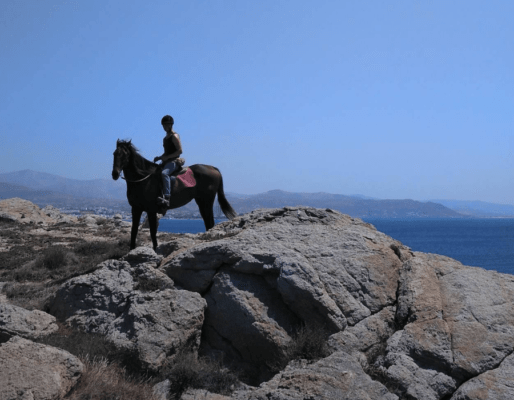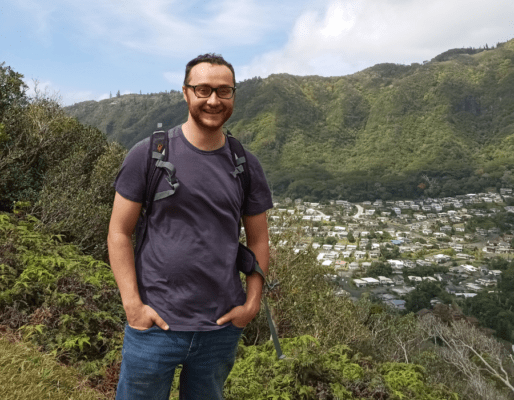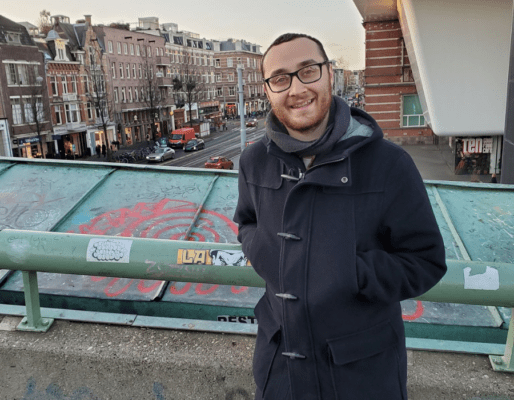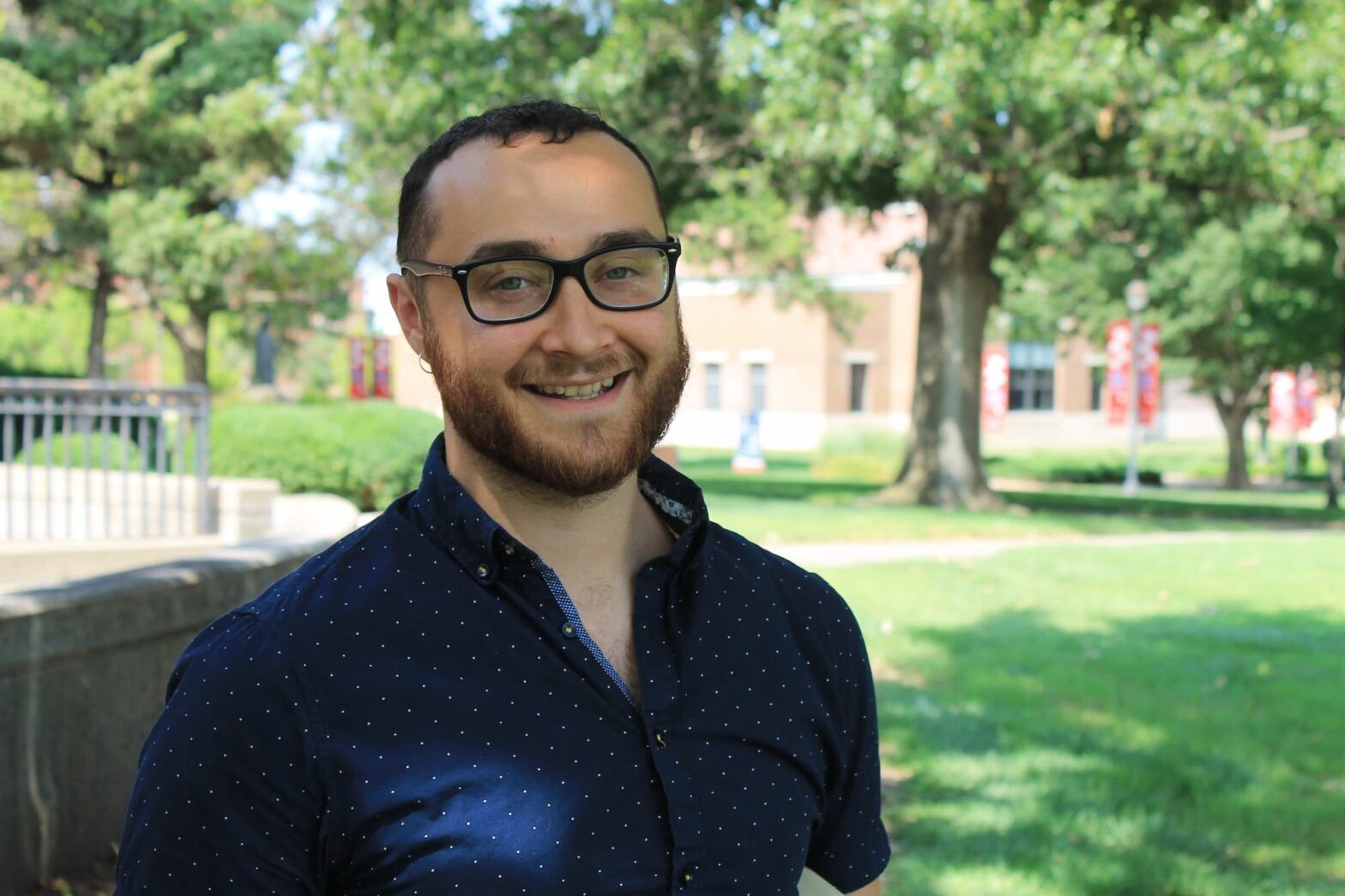Most Newman students who complete their general education philosophy courses take classes with Jamey Findling or Christopher Fox — both of whom are associate professors of philosophy.
Findling and Fox each had summer plans for 2021, so they turned to Newman’s newest adjunct professor Ruel Mannette to teach an online ethics course this summer.
Meet Ruel Mannette
Growing up, Mannette’s family experienced living in Maine, Florida, Virginia, North Carolina and eventually Kansas. Mannette’s dad Mark, the director of theater at Newman, even took the family to live abroad for five months.
“We always traveled a lot as kids, but then when we were in high school, Dad did a teaching stint in northern Italy,” he said. “And so we stayed there for a semester and then that kind of got me interested in studying in Europe and elsewhere.”

Mannette developed a love for riding horses during his undergraduate studies at Stetson University in Florida, joined the equestrian team and even went on to lead equestrian tours in Naxos, Greece. He also enjoys reading, collecting comic books, painting, making sculptures, acting in films and learning how to order fries in different languages.
“I can speak French moderately, and I can speak a little Italian and German, but I’m not very good,” he said. “And then also Japanese and Dutch, but I’m also not very good at those.”
After graduating from Stetson, Mannette went on to earn two master’s degrees — one in philosophy and one in bioethics — from Katholieke Universiteit Leuven in Leuven, Belgium. He also applied and was accepted into a program at the University of Hawaiʻi at Mānoa, where he recently finished his first year toward completing his doctorate in philosophy.

“I came back to stay with my family this summer, and the opportunity to be an adjunct at Newman opened up,” Mannette said. “It definitely helps having a home base, so staying with my parents to grade papers, create discussion posts and stuff worked out pretty well.”
Getting his philosophy fix
Though Mannette hopes to use his philosophy background to become a full-time professor, this wasn’t always the case.
“I didn’t really know much about philosophy before I took it,” he said. “It was mostly my mom saying, ‘You should take it.’ I knew a few philosophers from my dad, so I took a class. It opened up a whole different way of thinking about things that I hadn’t tapped into before.”
Regardless of where undergraduate students enroll, many are required to take courses outside their field of study. Mannette encourages students to take these classes with an open mind. Aside from the external, applicable knowledge that may be found within the lines of textbooks, differing academic experiences can help students learn more about themselves, he said.
Mannette went on to share an analogy about what it might be like to grow up in a family that read only one type of comic book.
“Let’s say you were raised in a house where everyone always just liked Batman, so you probably grew up thinking you’d only ever like Batman,” he continued. “And then there’s a class that opens you up to Image Comics, Dark Horse, Daredevil and Marvel. You get all these other characters who you’d never thought about before.”
He added, “That’s when you start to uncover what you like and not just what you’d always been raised with.”

Mannette’s philosophy of education
College can sometimes be perceived as a transactional tool that will give graduates exactly what they need to ensure a job afterward. In reality, college is more like a Swiss Army knife, Mannette explained.
“It gives you all these potential tools to be able to utilize in different situations, but you never know what situations you will encounter.”
Mannette’s appreciation for a diverse liberal arts education aligns with the ideas of the university’s namesake, St. John Henry Newman. Newman’s philosophy is that higher education should help expand the mind, allowing for graduates to not only succeed in society but also to transform it for the better.
“This is how you get Alexander Graham Bell inventing the telephone — he’s reading and he’s just playing around, trying to figure out how these things work,” Mannette said.
“The only way to get these kinds of great discoveries is when you’re just trying to learn, and when you’re not just trying to follow the ruts that have already been laid out for you.”
Earn a degree in philosophy
Students studying philosophy at Newman University learn to question critically, argue rigorously, and think synthetically while engaging fundamental questions about reality, God, the limits of knowledge, and the meaning of human life.


